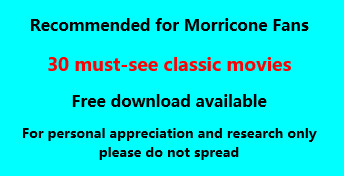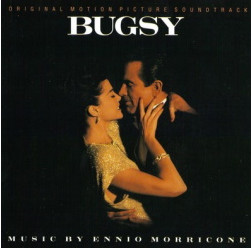THROWBACK THIRTY
Original Review by Jonathan Broxton
Looking at the city of Las Vegas today, it’s difficult to see past its opulent hotels, gourmet restaurants, popular shows, beautiful weather, and frivolous excess, and remember that this world center of entertainment has its origins in organized crime. Director Barry Levinson’s film Bugsy explores these origins, specifically looking at the life and death of New York gangster Benjamin ‘Bugsy’ Siegel, who travels to Los Angeles in the early 1940s, gets involved with tough-talking Hollywood actress Virginia Hill, and makes a lot of friends and a lot of enemies in California’s criminal underworld, before he has the world-changing idea of building a luxury casino – the Flamingo – in the sun-baked Nevada town of Las Vegas as a way to launder money. The film is a fascinating look at the birth of one of the world’s most popular vacation spots; it stars Warren Beatty as Bugsy, Annette Bening as Hill, and features a supporting cast including Harvey Keitel, Ben Kingsley, and Elliott Gould. The film was also a critical success, picking up ten Academy Award nominations – including Best Picture – and eventually winning for Art Direction and Costume Design.
One of those other Academy Award nominations was for its score, written by the legendary Italian composer Ennio Morricone. In the early 1990s Morricone was still writing one or two mainstream Hollywood scores per year, along with 30-40 European ones (that’s an exaggeration, of course, but he was certainly prolific!), and Bugsy was one of his most acclaimed works of the period. The score is built around two different love themes, which illustrate the two main loves of Siegel’s life. The first, “For Her, For Him,” is a representation of the love between Siegel and Hill, who despite their less-then-salubrious origins, shared a genuine and heartfelt romance. Morricone’s theme for them is a luscious, romantic, attractive melody for strings which has a flavor of several earlier scores – I got notable echoes of Once Upon a Time in America – but is played in counterpoint against some rather difficult and often somewhat odd-sounding woodwind harmonies which offer a slight tone of unease, as if the music knows what their fate will be.
The second theme is “Act of Faith,” and is a representation of Bugsy’s love of Las Vegas and the Flamingo Hotel itself – his monument to the world, and his obsession. The theme is anchored by a superb, haunting flugelhorn performance by soloist Francesco Santucci, and is a perfect encapsulation of classic Las Vegas itself – its origins are in that most wonderful type of lazy rat pack jazz, with a smoky, languid, bottom-of-a-whisky-glass sound, combined with Morricone’s own personal vibe. It’s unmistakably Ennio, but also fits snugly within the conventions of the mobster genre.
One of the other of these themes are repeated prominently in subsequent cues such as the dreamy “That Night In Las Vegas,” “United,” “Fly Away,” “Act of Faith,” and “At Great Expense.” “Bugsy’s Death” is probably the emotional high point of the score, offering a solemn elegy for the criminal who, to this day, remains a complicated and much-debated figure, but even this cue mostly keeps its emotions in check, never fully embracing a larger and more demonstrative scope.
Most of the rest of the score is equally subdued, comprising a series of low-key suspense and drama passages for undulating strings, accompanied by low-end piano figures, and frequent guest appearances from Morricone staples like recorders, harpsichords, and muted brass textures. I especially like the sense of menace that permeates cues like “Die Is Cast” and “On Sale,” the guitar sounds in “In Cuba” that veer from slightly ominous to lushly exotic, and the subtle sense of optimism and anticipation in the expressionistic “Desert Mirage”.
One cue – “Bugsy’s Arrest” – is a little more fulsome and is the closest the score comes to having any real action music; the staccato rhythmic ideas and pensive writing for piano, strings, muted brass, twittering woodwinds, harmonica, and Rosario Giuliani’s alto saxophone is a throwback to another Oscar-nominated gangster score, The Untouchables, and also has some echoes of some of his better European crime thriller works.
The album is rounded out by a quartet of period songs, including Harold Arlen and Johnny Mercer’s “Ac-Cent-Tchu-Ate the Positive” made famous by Bing Crosby, two jazz standards performed by Jo Stafford, and the original 1942 Peggy Lee performance of “Why Don’t You Do Right” – I still can’t listen to this song without thinking of Jessica from Who Framed Roger Rabbit, but it is still a terrific ‘woman’s blues’ song, in which a woman chastises her man for all his immoral and irresponsible ways.
As good as a great deal of Bugsy is, I still feel as though this was another score that was dragged along to an Oscar nomination on the coattails of an acclaimed film, at the expense of other better scores attached to less prestigious movies. Bugsy is a score that will appeal more to Morricone aficionados and completists than casual fans; the two main anchoring themes are lovely, but quite a lot of the meat of the score is subdued, textural, and rather dour in places, which suits the film but doesn’t really make a major impression out of context.
Buy the Bugsy soundtrack from the Movie Music UK Store
Track Listing:
- Ac-Cent-Tchu-Ate the Positive (written by Harold Arlen and Johnny Mercer, performed by Johnny Mercer) (2:49)
- For Her, For Him (4:52)
- Act of Faith (3:20)
- Die Is Cast (3:25)
- That Night In Las Vegas (2:01)
- Humiliated (1:35)
- United (3:32)
- Bugsy’s Arrest (3:47)
- In Cuba (1:44)
- Why Don’t You Do Right? (written by Joe McCoy, performed by Peggy Lee) (2:26)
- Candy (written by Alex Kramer, Mack David, and Joan Whitney, performed by Johnny Mercer and Jo Stafford) (3:13)
- Fly Away (4:26)
- On Sale (1:38)
- Act of Faith (3:15)
- Desert Mirage (1:30)
- On a Street, At Night (2:07)
- More Money (1:57)
- At Great Expense (2:40)
- Bugsy’s Death (4:25)
- Virginia Waits (2:17)
- Neurotic Love (2:14)
- Long Ago (And Far Away) (written by Jerome Kern and Ira Gershwin, performed by Jo Stafford) (2:54)
Running Time: 62 minutes 07 seconds
Epic Records EK-48804 (1991)
Music composed and conducted by Ennio Morricone. Performed by Orchestra Unione Musicisti di Roma. Orchestrations by Ennio Morricone. Featured musical soloists Rosario Giuliani, Francesco Santucci, Paolo Zampini and Angelo Giovagnoli. Recorded and mixed by Franco Patrignani . Edited by James Flamberg. Album produced by Ennio Morricone.












